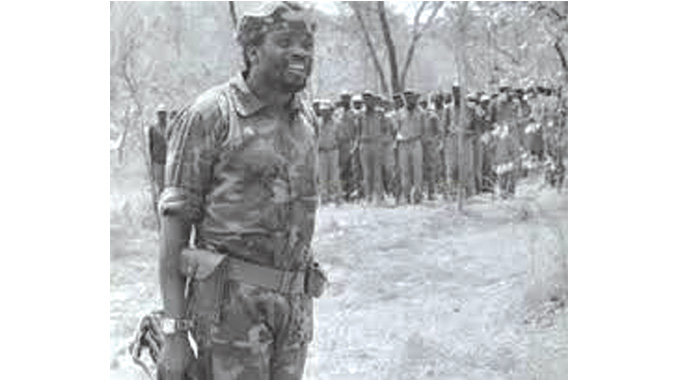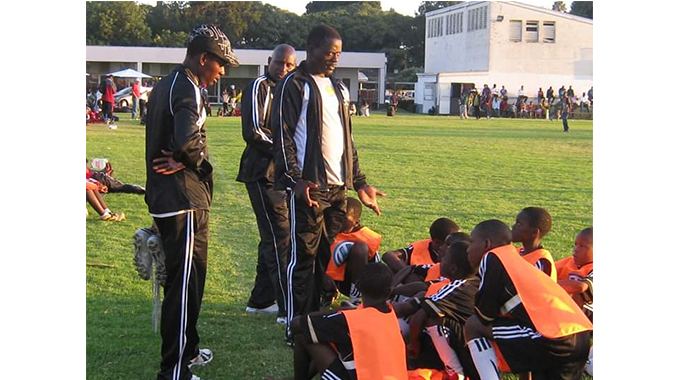Beyond ZPRA commander Nikita Mangena’s death: Seeking to understand the world political scene and its dynamics

Pathisa Nyathi
Before we start on new themes pertaining to the history of Zapu/ZPRA we need to wrap up by identifying political lessons from the times of Nikita Mangena. We do know that his and other colleagues’ military training in Algeria lasted longer than those of his comrades he did basic training with. When the likes of John Dube (Sotsha Tjakalisa Ngwenya) returned to Lusaka he and others proceeded to do advanced military training, also in Algeria. In the last few articles, we gave an account of how he met his death which was attended by many conspiracy theories. In this article and a subsequent one, we seek to unpack lessons that we may do well to pay special attention to in order to glean the world’s political dynamics.
The world we live in is a world of stiff competition over critically important resources which are finite. The more developed countries engage in political shenanigans and intrigues in order to ensure they get access to the resources that drive their economies. As they do so they do not wish to be seen that they are engaging in covert operations that seem political, ideological and sometimes religious or even bordering on governance issues. The truth remains, the prime consideration is access to strategic minerals under the surface of the earth and sometimes under the sea waters.
In these nefarious underhand and undercover operations intelligence gathering is important. Military technologies lead the way. Only when a given technology has been overtaken by more modern technologies, they are released to non-military civilian operations. Before the drones became available to civilian use the military were already using them and other more advanced military technologies. It was the same with mobile phones. The military is a powerful tool in fighting wars over the world’s resources. Just what political scenarios would emerge in the Middle East and elsewhere after crude petroleum was replaced by another source of energy to power various engines such as in ships, aeroplanes and automobiles?
Competing nations rely on their intelligence agencies to spy on other nations and get to know what military technologies and armaments they possess and how to counter the arsenal at their adversaries’ disposal.
There is thus huge investment into the military to finance intelligence gathering operations and driving counter intelligence. In some of the countries there are African desks whose role is to gather intelligence relating to the political dynamics of less powerful nations who however, possess strategic minerals. Intimate knowledge is required so that destabilisation strategies are designed and put into effect with minimum observation and comprehension by the targeted nations. If there is to be regime change, smart tactics ought to be used.
Within some embassies there are military attaches whose business is to gather military intelligence pertaining to host countries. The black diplomatic enjoys diplomatic immunity from prying eyes. During Gukurahundi in the 1980s for example, there were bee lines between Harare and the capital cities such as London, Melbourne, Washington, Pretoria and others. The governments of those countries knew well what was going on and their roles in the ongoing operations. The Wikileaks exposed some of these intelligence assessments, as information that would otherwise be inaccessible to ordinary citizens. The United States of America wants to have the engineer of the Wikileaks extradited so he faces trial for what he did. The resources of the world are in the hands of a small powerful and ruthless clique.
Further, the same powerful clique controls opinion-making media, be it print or electronic. World leaders who do not play ball are targeted and liberally smudged with black paint so that they are seen in bad light.
When such leaders are then fought and deposed from power, the people’s minds would have been appropriately psyched to see nothing wrong with military intervention against such a leader.
In such covert operations there have to be insiders, agents that work in cahoots with the foreign powers. This is a strategy and phenomenon that has been taking place over centuries in Africa and indeed elsewhere.
During the slave trade four centuries ago there were, in Central Africa, the Chikunda people who acted as proxies for the slave traders who remained at the East Coast and left the dirty work to be carried out by the Chikunda agents and their counterparts in other areas together with the chiefs and kings. In many previous articles we have indicated that there were Rhodesian spy agents who infiltrated the liberation movements. It was such elements that provided intelligence to the Smith regime which had to have access to such information if they were to carry out accurate and effective counter strategies against the guerrillas.
How did the Rhodesians get to know Asaf was taking an Angolan-trained unit to the gorges in the Zambezi Valley to cross into Rhodesia and beef up the numbers of guerrillas fighting inside Rhodesia? Of course, the Rhodesian agents did not work in isolation. They exchanged intelligence with their allies who were too keen to know more about the military capabilities of countries that supported the liberation struggle. They wanted to know the type of weapons that the guerrillas used and who supplied that arsenal. In exchange the Rhodesians got intelligence from the agencies operating with more advanced technologies and sophisticated counter-intelligence. This is not to say the powers that provided the liberation movements with weapons were not spying on their enemies. In the last article we referred to the accounts of Sterlington Shumba who trained in counter-intelligence in Ukraine. They had instructors and interpreters at the Simferopol Military Academy who they later learnt were KGB operatives.
It would have been foolhardy for the Soviets to supply ZPRA with material armaments and fail to give them intelligence. They knew well that Western countries were doing the same with regard to the Rhodesians.
Terrestrial and extra-terrestrial spaces are replete with intelligence moving in all directions. The same is true of counter-intelligence. It is interesting to note that African nations hardly believe they can influence the course of political events in powerful nations. It would be interesting to know why they arrive at this position. We hardly hear of the American Desk where African nations derive intimate knowledge about the United States of America to a point where they can seek to influence, for example, the electoral outcome in that country come November 2020.
Is it not equally interesting to observe that when Zapu split in 1963 Reverend Ndabaningi Sithole was instrumental, and that he was American educated? Before he passed, James Robert Dambaza Chikerema pointed out that by 1963 Zapu had become powerful and had to be incapacitated through engineering a split. John Bruner who was a Special Branch operative, and later infiltrated, in 1964 into Zambia, narrates how they worked to cause the split by handling certain Zapu members. The book he wrote is titled For the President’s Eyes Only. The President being referred to was Dr Kenneth Kaunda whose intelligence machinery was created by the Rhodesian Special Branch. It was national hero Sikwili Khohli Moyo who, each time I sought to interview with him in the 1980s, referred me to the book in question. I laid my hands on it at the National Free Library in Bulawayo. It was not available for lending. Later, it melted into thin air. The Capricorn Society was equally engaged in activities seeking to emasculate Zapu.
In 1971 when Zapu split once again, Walter Mthimkhulu who was instrumental in the split was also American educated. In that split the faction in which there was James Chikerema and George Bodzo Nyandoro, the one known as the Front for the Liberation of Zimbabwe (Frolizi), was led by Shelton Siwela, also American educated.
To be continued








Comments